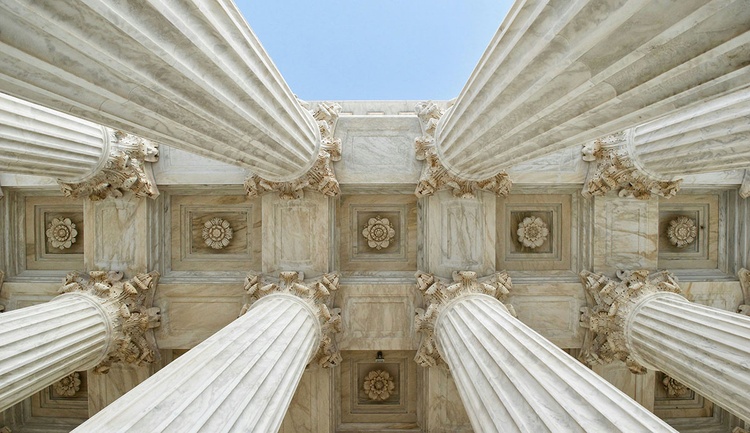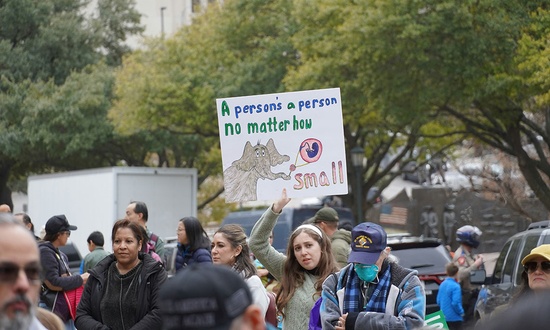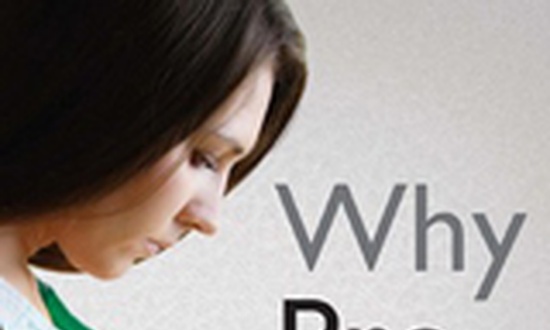Question from a reader:
Some people in the prolife movement believe that if we can just get the Supreme Court to reverse Roe v. Wade, we can stop all abortion in the U.S. This seems unreasonable. There was abortion before Roe v. Wade, and if we end legal abortion in America, won’t it just give birth to a big illegal abortion industry?
Answer from Randy Alcorn:
I totally agree. We cannot stop all abortions, any more than we can stop all hunger, poverty, sex trafficking, child abuse, wife abuse, torture or persecution. We cannot stop all sin.
What we CAN do, by God’s grace, is help stop each of these in the lives of one person at a time. In my book Money, Possessions and Eternity I write,
“But I’m just one person. And we’re just a small church. How can we eliminate poverty?” The answer is, you can’t. Jesus said the poor would always be with us (Mark 14:7). Then, should we give up? Of course not. I saw a relief organization poster that asked the question, “How can you help a billion hungry people?” The answer it gave was right on target: “One at a time.” Just because I can’t take care of all the world’s poor doesn’t mean I can’t begin by helping one, then two, then five, ten, and so on. The logic that says, “I can’t do everything, so I won’t do anything” is from the pit of hell.
It’s exactly the same thing we face in evangelism. Imagine someone saying, “We have an evangelism strategy that will save every soul, and stop every person from going to Hell.” Of course, that’s a lie. It’s also demotivating, because it can’t possibly work.
But if you say, “Let’s be faithful and share the Gospel and trust God to save SOME people, even MANY people,” well, now we have a plan that’s both realistic and encouraging. Saying we can save ALL people is false and discouraging, and the first time someone isn’t saved (or a child is aborted) we lose hope. Saying we can prevent all abortions is totally unrealistic. Saying we can prevent SOME abortions and even MANY abortions is both realistic and encouraging.
Now, if the national law was changed and abortion was made illegal again, certainly SOME lives—probably MANY—would be saved. So legislative means are still very important to pursue. But would ALL unborn children be saved? Of course not. Illegal abortions would happen. Since 90 percent of pre-1973 abortions were done by doctors, it’s safe to assume that if abortion were illegal again, many physicians would continue to perform abortions. And sadly, yes, many women would continue to have abortions. But the “many” might be a quarter of a million rather than five times that many. There is simply no way to tell. The result might be a million mothers and babies annually saved from abortion. But just because we can’t save all of them and illegal abortion may increase doesn’t mean we shouldn’t do all we can to save the most we can.
I say this in my book Prolife Answers to ProChoice Arguments:
“Even if abortion were made illegal, there would still be many abortions.”
That harmful acts against the innocent will take place regardless of the law is a poor argument for having no law.
There are laws against burglary, rape, and armed robbery yet every one of these crimes continues to happen in our society. That these things still happen should not convince us to make them legal. Laws should discourage bad things from happening, not conform to them simply because they happen.
The law can guide and educate people to choose better alternatives.
In her 1998 study of abortion laws and attitudes around the world, Rita J. Simon said:
Abortions are permitted on request in forty-one nations. Tunisia is the only country in Africa to do so and across the Atlantic, a rather strange trio, Canada, the United States, and Cuba do so. In Asia and Europe, almost all of the communist and former communist bloc countries do so along with the Scandinavian countries and Austria, the Netherlands, and Greece.
Public attitudes toward abortion were found to be positively and significantly correlated with abortion statutes. Those countries that had the most restrictive statutes vis-à-vis abortion reported the lowest approval ratings for abortion and those countries that permitted abortion on demand reported the highest approval ratings for abortion.[1]
This study shows that most people do not seriously contemplate abortion as an ethical issue, but simply buy into the beliefs about abortion implied by the existing laws of their country.
It is true that hearts and minds—not just laws—need to change in relation to abortion. Yet, we often underestimate the power of law to mold thought as well as action. When slavery was abolished, people gradually began to think differently. The civil rights movement brought about further changes in law, and further changes in people’s thinking. The law is a moral guide, a tutor that helps shape the conscience of society.
Even when law doesn’t change attitudes right away, it does affect the actions of many. Martin Luther King Jr., said, “Morality cannot be legislated, but behavior can be regulated. Judicial decrees may not change the heart, but they can restrain the heartless.”[2]
Laws concerning abortion have significantly influenced whether women choose to have abortions.
Marvin Olasky’s Abortion Rites: A Social History of Abortion in America, is an insightful study that documents the historical emergence of American abortion.[3] Olasky recounts how various groups in the nineteenth and early twentieth century provided abortion alternatives without dealing with the issue of laws and demonstrates that it is inaccurate to suppose abortion cannot be fought, and alternatives to it effectively offered, without changing the law. However, this is only one part of the picture.
There were abortions in this country before abortion was legal, but the number skyrocketed once it was legalized. There are now fifteen times more abortions annually in this country than there were the year prior to Roe v. Wade.[4] The laws that once restrained abortion now encourage it.
A change in abortion laws, from restrictive to permissive, appears— from all data and in every country—to bring forward a whole class of women who would otherwise not have wanted an abortion or felt the need for one.... Women can be conditioned (and are in many places) to want and feel the need for abortions. Evidence from those countries where abortion-on-request has been long available (Russia, Japan, Hungary, for instance) shows that the subjectively felt stress that leads women to seek an abortion is socially influenced.[5]
In one survey of women who had abortions, 72 percent said they would definitely not have sought an abortion if doing so were illegal.[6] Though making abortion illegal again would not stop all abortions, it would encourage the larger number of women to pursue available alternatives.




